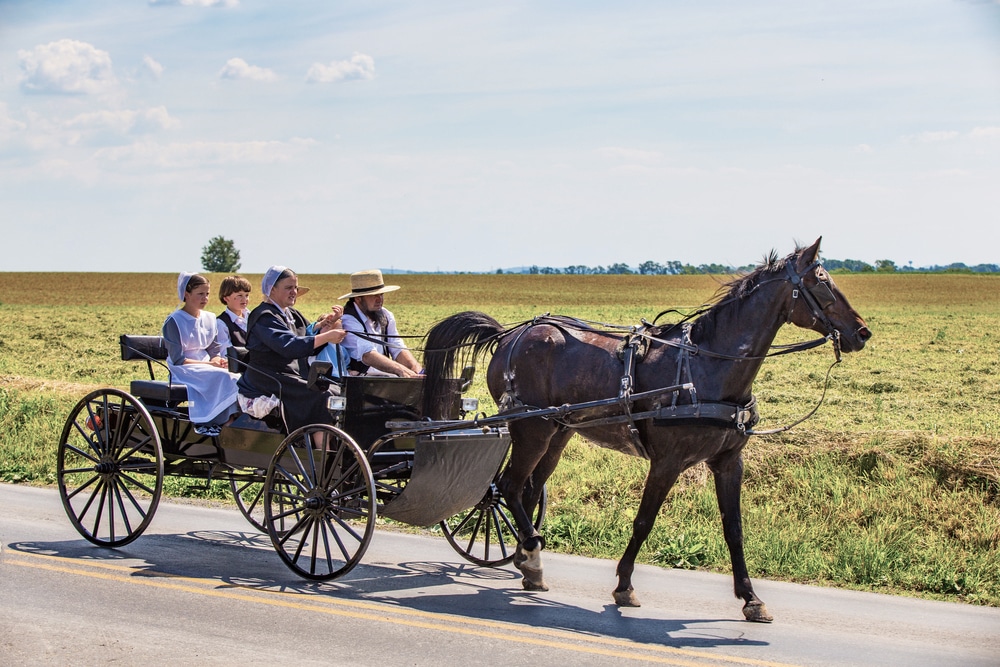Blog > Tax Legislation amp Proposals > Do Amish Pay Taxes? The Truth on This Burning Question
Do Amish Pay Taxes? The Truth on This Burning Question
July 20, 2023 - Friendly Tax Expert

In the heart of the United States, the Amish community lives in a way that sets them apart, adhering to religious beliefs and lifestyle practices that date back centuries. Their unique way of life often raises intriguing questions, not least of which is: "Do the Amish pay taxes?" This inquiry prompts an exploration into the intersection of faith, taxation, and societal obligations.
It's important to note that the tax code in the United States isn't one-size-fits-all, and there are provisions for religious beliefs and practices. But how does this apply to an Amish person? And what kind of taxes might Amish individuals be exempt from, if any? These are questions that have piqued the curiosity of many. A frequently asked question is, "Do the Amish pay taxes?" The answer might surprise you.
Despite their distinctive lifestyle and religious beliefs, the Amish are not entirely exempt from the tax obligations that other American citizens face. In this blog post, we'll look into the complex world of the Amish and taxation. We will explore the various types of taxes, the reasons behind their tax status, and how their faith influences their relationship with taxation.
Do the Amish Pay Taxes in the United States?
Yes, the Amish do pay taxes in the United States. However, to fully grasp the context of this answer, it's crucial to first understand the unique Amish belief and lifestyle of the community. Known for their simple living, plain dress, and hesitation to embrace many conveniences of modern technology, the Amish live a life deeply rooted in a Christian denomination that prizes humility, family, community, and separation from the world.
This way of life, dictated by the Amish belief system, influences every aspect of their existence, including their financial responsibilities. They perceive their societal obligations differently than most, guided by their faith and communal practices. These religious convictions shape their approach to matters related to taxation. Nevertheless, the Amish are still subject to some taxes.
What Taxes Do the Amish Pay?
The Amish community in the United States is responsible for a variety of taxes. Although their religious beliefs and lifestyle may be different from what is considered mainstream, they are not entirely exempt from financial obligations to the state and federal government.
Each Amish community's specific tax responsibilities can vary depending on local and state laws. Despite their simple and self-sufficient lifestyle, they uphold their responsibility to contribute financially to society while maintaining a balance with their commitment to their religious beliefs and the principles of the Amish church.
Here are some of the taxes that the Amish pay:
Income Tax
Just like any other citizen or resident, the Amish are required to report their income and pay the necessary income taxes to both state and federal governments. This includes income from their work, which often involves farming, carpentry, and other trades. The amount of tax varies depending on the income bracket they fall into, just like anyone else.
Sales Tax
When the Amish make purchases, whether it's for personal items, building materials, or agricultural supplies, they're subject to the same sales taxes as any other consumer. This tax is generally a percentage of the purchase price and is collected at the point of sale.
Property Tax
Property taxes are levied on real estate that the Amish own. This includes their homes, farmlands, and any other property within their possession. These taxes are typically used to fund local services such as public schools, roads, and law enforcement.
Gas Tax
While the Amish are known for their horse-drawn buggies, they do use fuel for certain purposes. For example, they might use fuel for generators, farm equipment, or other machinery. When they purchase this fuel, they're subject to gas taxes.

What Taxes Do the Amish Not Pay?
The Amish community, due to their specific religious beliefs, is exempt from certain types of taxes. These exemptions stem from their commitment to self-sufficiency and mutual aid within their communities. Here's a detailed look at the taxes they do not pay:
Social Security Tax
The Amish do not pay Social Security tax. They believe in taking care of their elderly through community support rather than relying on government assistance. As such, they don't contribute to or receive benefits from the Social Security system.
Medicare Tax
Similarly, the Amish do not pay Medicare tax. Their approach to healthcare involves pooling resources within their community to help cover medical expenses for those in need, which means they also do not use Medicare benefits.
Federal Unemployment Tax Act (FUTA) Tax
FUTA tax is another area where the Amish have an exemption. The Amish community believes in supporting each other during times of unemployment or financial hardship. Therefore, Amish employers do not typically pay into the federal unemployment insurance system.
These exemptions are specific to federal programs that the Amish community chooses not to participate in due to their religious beliefs. However, it's important to note that they actively fulfill their obligations for other state and local taxes, including income, property, and sales taxes.
Tax Questions? Consult Federal Tax Resolution Today
If you have any questions about taxes in general or the unique tax obligations of the Amish community, it pays to consult a qualified tax professional. At Federal Tax Resolution, we have experienced tax professionals who can help you navigate the complex world of taxation and provide guidance tailored to your individual needs.
Don't hesitate to contact us today for a free consultation! We look forward to hearing from you and helping you resolve any tax-related issues.
